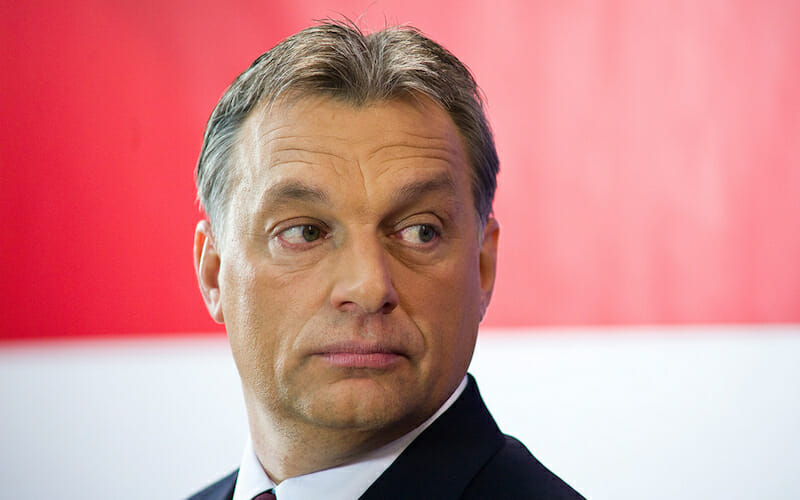
The Geopolitical Insecurity of Central and Eastern Europe
The illiberal turn in central and eastern European countries has been categorized by many factors. The perceived interests of the ‘nation state’ are taking center stage, thereby overlooking the collective values of the European Union to which the post-communist countries subscribed following the breakup of the Soviet Union. Some authors have argued that the combination of factors such the global financial slowdown of 2008 and its consequent effect on Europe as seen with the Greece economic crisis; the security dilemma resulting from Russia’s aggressive behavior in Ukraine; the Brexit, and EU’s reluctant refugee policy have all contributed to the rising tide of populism and right-wing politics in central and eastern European countries.
However, others have argued that the rise of illiberalism has to do with the nature of transition that took place in these countries towards liberal democratic institutions. Following the collapse of the communist governments in 1989, little thought was given to the troublesome past that these societies had contented with while making their transition to liberal democracy. In other words, the generally held belief in the West at the time was that the removal of the communist system was sufficient to install western values. As comprehensive as the arguments are, they miss a crucial point of geopolitical insecurity that these countries face. In 1946, the Hungarian intellectual Istvan Bibo published a pamphlet called The Misery of the Small States of Eastern Europe. In it, he argued that democracy in the region would always be held hostage to the lingering effects of historical traumas, most of them related to eastern European states’ history of domination by outside powers.
Central and Eastern European countries are categorized as per the OECD grouping of countries comprising Albania, Bulgaria, Croatia, the Czech Republic, Hungary, Poland, Romania, the Slovak Republic, Slovenia, and the three Baltic States: Estonia, Latvia and Lithuania. The geopolitical insecurity has been compounded throughout the history, which has seen the region fight for not just its independence but also for the preservation of its national identities, during a series of occupations led by the Ottoman, Hapsburg and the Russian empires. The historical trauma and experience were heightened during World War II when the region suffered numerous losses at the hands of both Allied and Axis powers. During the Cold War, the region was divided into the communist bloc and was subjected to almost half a century of Soviet domination.
None of these experiences installed a sense of security or openness among the masses or the ruling class as far as embracing multiculturalism or liberal values was concerned. Nevertheless, with Soviet disintegration, these countries found their security interest aligned with the West. The EU and the United States were seen as dominant powers capable of providing military security and financial stability which were essential for the post-communist transition of these societies. For this reason, more and more central and eastern European countries vouched for EU and NATO membership. The underlining geopolitical narrative was to balance the West against the East making sure security risks remain low and economic growth be achieved. Geographical proximity to Russia and the weakening of Moscow’s international positioning made the central and eastern European countries even more vulnerable to Moscow’s aggressive behavior.
The logic of geopolitics dictated being with the EU and the United States as long as their dominance over the region prevailed. However, since the last decade, the geopolitics of Europe has changed which is primarily the result of three crucial factors. First, the cornerstone feature of European geopolitics which was centered around keeping Germany in check thereby enabling it to play a role on the world stage without provoking fear in its European neighbors has withered away. Germany today is the economic hegemon of Europe who cares more about its economic growth than about the security of the EU member states. The economic dominance and the inability to contribute to the security concerns of eastern European countries who perceive Russia’s aggressive behavior as a major threat to their national security has caused the feeling of resentment among several EU members states, for example, Poland, Hungary and the Baltic States. This is one of the reasons why Poland objects to the imposition of liberal ideas from Germany be it in the form of the functioning of the government or the resettlement of the refugees.
Second, the changing role of the United States. Even before President Donald Trump, the US foreign policy towards Europe was hobbled over the shifts in US policy to Asia, the over expanding cost of US efforts in Middle East and the expensive nature of maintaining the NATO alliance. In a speech in 2011, US Defense Secretary Robert Gates said a “two-tiered alliance was emerging that was divided between those willing and able to pay the price and bear the burdens of alliance commitment and those who enjoy the benefits of NATO but don’t want to share the risks and the costs.” Although the statement was directed towards Germany for its free riding behavior, it unearthed the varying degree of perception that countries within the EU had towards security threats emanating from Russia. President Trump’s statement over NATO in this regard further underlined the changing geopolitical narrative of Europe.
Third, following its actions in Syria and Ukraine, Russia has once again emerged as a strong global player with the capability of influencing events not just in its immediate neighborhood but also abroad. Although one can debate what Russia aims to achieve through its actions in Ukraine and Syria, it is hard to sideline the fact that Russia has been able to disrupt the status quo in both the region and established itself as an important player whose interest can no longer be ignored. In Europe, Russia’s foreign policy has had two major effects. First, Putin’s style of authoritarian rule and anti-western ideology has found some ground in the political discourse of right wing populist parties and second, the return of the Russian threat has divided Europe into two different camps where one camp (comprising mostly of eastern European countries) wants strong military action against Russia while the other believes in diplomacy and non-military means at the most viable way to deal with Moscow. The Russian threat can be seen as one of the triggering factors to vote for an illiberal government for whom the security of the nation remains the highest priority.
What has become clear for central and eastern European countries is that for matters of security they cannot solely rely on Brussels or Berlin. Moreover, the emerging geopolitical trend shows these countries favoring a strong security cooperation between themselves and also their enhanced bilateral relationship with the United States while maintaining their shared commitment to NATO. In this regard, initiatives like the Central European Defense Cooperation, The Three Seas Initiative, the revival of the Intermarium concept all show a new geopolitical trend taking shape in the region. The underlining feature of this new geopolitics is to balance both the economic hegemony of Germany within the EU and also create a new strategic Intermarium containment line towards Russia with the cooperation of the United States. What it means for the future balance of power in Europe is something which can only be analyzed with time. But, with nationalist governments on the rise, and their challenge to the liberal democratic values of the EU, only shows that the geopolitics of the region is bound to undergo a major change sooner than later.

